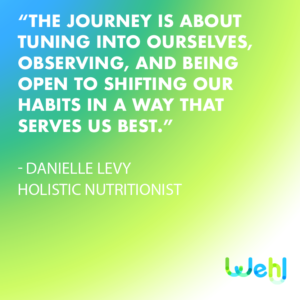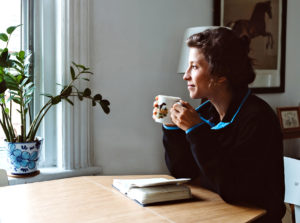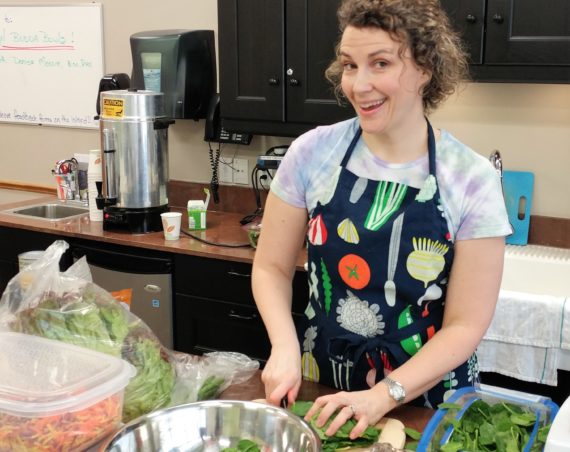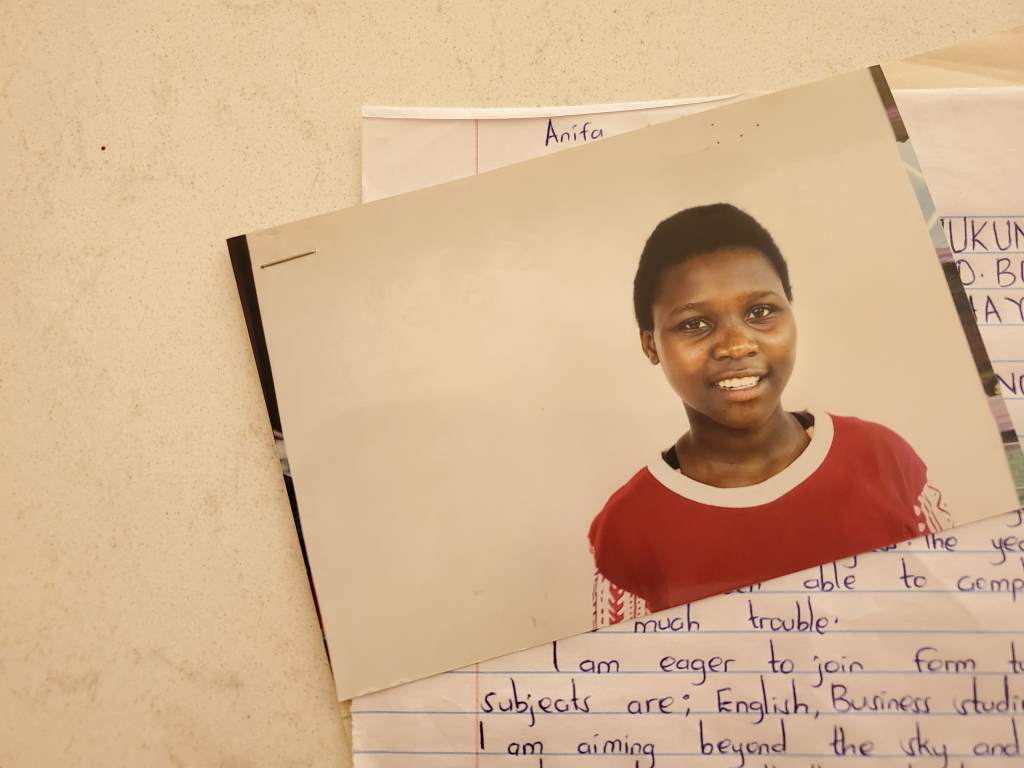Small, holistic changes can have a big impact on your wellness. Sometimes, just getting started can be the hardest part! Registered Holistic Nutrition Practitioner Danielle Levy from Danielle Levy Nutrition specializes in digestive health, food allergies, hormone balance, and mindful eating. She has become an expert on how to help show her clients that even small changes can make a big wellness impact.
We chatted with Danielle about what small changes you can do today, how to feel more energized in the mornings, and how to finally get into a regular exercise routine.
WEHL: Tell us a little about yourself and why you became interested in holistic wellness.
DL: Yes, I work as a Registered Holistic Nutrition Practitioner – offering one-on-one sessions and Health Programs since 2012. I also do work in food, developing plant-based recipes, and teaching cooking classes. I became interested in holistic wellness early on, in my late teens. Like many practitioners, I entered the field once learning how to heal my own body – through nourishment and lifestyle adjustments.

WEHL: What is your philosophy on wellness?
DL: I think we are all unique as individuals. No one diet or lifestyle plan works for everyone. The journey is about tuning into ourselves, observing, and being open to shifting our habits in a way that serves us best. This will change over time, but we have the power within ourselves to listen and create balance. That said, having support and guidance of a health professional can be helpful at certain times of the journey – and it’s an honour to join people in this way!
WEHL: Why did you decide to become a Holistic Nutritionist?
DL: I recognized that food was a powerful connector. That it connects us to Earth, to culture, our communities, and the world at large. It was important to me that my work contributed to a healthier world – for people and the planet. I believed that serving as a Holistic Nutritionist would allow me to do this, which has proven to be nourishing, and meaningful for this reason.
WEHL: What are some ways that we can get back to our healthy habits when life happens and we get off track?
DL: Well one thing I like to tell my clients, is that ups and downs ARE a natural part of life – and ‘falling off track’ is part of the journey. When we perceive it as a failure, we can get into a downward cycle of behaviors. However, when we practice self-compassion, and step back far enough to see WHY our habits changed – we can be more effective moving forward.

WEHL: Why do you think taking small steps may be the best way to improve our overall health and wellness?
DL: The opposite approach, making huge changes within a short period of time has a pretty poor track record for most people – when it comes to our health and wellness. Taking small steady steps is typically a more sustainable way to adopt a healthy lifestyle, from my experience working with people – and within my own life. If the goal is to live well for the rest of our lives, there is no ‘rush’. Rushing is counter health in my mind. Living slow, and making gradual change is generally a more enjoyable approach to improving our health and wellbeing.
WEHL: What are a couple of small, holistic changes anyone can do today to help?
DL: Here are three small things anyone can do – to support their health and wellbeing:
- Stay Hydrated: Most people seem to be dehydrated, to a certain degree – and don’t realize it. This can contribute to symptoms like headaches, and fatigue – and we often mistake hunger for thirst. Staying hydrated supports all body systems – especially digestion, and skin health. I suggest sipping water and/or herbal tea in between meals and aim for 2-3 litres each day.
- Daily walking: While many people enjoy going to the gym, doing yoga, or other activities – they rarely walk more than 10 minutes consecutively a day. Walking is essential for human health, and well-being – we are built for it. I suggest integrating a 30-minute walk into your daily schedule. Walking to and/or from work, or part of the way is a simple way to achieve this. We all feel better after moving our bodies, and breathing fresh air outside!
- Mindful Breathing: We typically ‘forget’ to breathe out of busyness, or distraction. Taking shallow chest breaths, which can perpetuate the feeling of anxiety – and can limit the amount of oxygen we are getting. I recommend setting a timer, as a reminder, to take a few deep belly breaths throughout the day. Breathing in through our nose – into our belly, and then out through the mouth. Mindful breathing can be calming – helping us connect with our bodies, and the present moment.
WEHL: Why do you think it’s hard for many of us to eat healthy and be consistent?
DL: I think a lot of it has to do with our mindset. The way we define ‘healthy eating’ plays a big role in the process of adopting consistent healthy eating habits. I encourage people to create their own reality, big-picture definition of what healthy eating/living means to them – as a writing exercise. This helps us to manage expectations, and develop sustainable habits. Consider what healthy eating may look or feel like to YOU? Does it mean living harmoniously with your needs and preferences? Eating in a flexible, balanced way, that allows you to enJOY food? If our vision of healthy eating feels rigid and stressful – it will likely be challenging to maintain.
WEHL: Many of us struggle to get out of bed in the morning; what can we can do at night for a more energized morning?
DL: Yes sleep hygiene is very important for our overall health and well-being. I suggest making it a habit to get to bed at the same time each night, and wake up at the same time each morning. Our bodies benefit from a consistent sleep routine. We can turn off stimulating electronics 1-hour before bed. Replacing that habit with rituals that help us to relax before bed – like taking a hot bath, meditating, or journal writing for example. This can help us to wind down and have a more restful sleep. Eating well, and staying active throughout the seasons – also contributes to better quality sleep – making it easier to get out of bed in the morning!
WEHL: It can be hard to fit in a gym/fitness routine into our day; what would you suggest to get us moving regularly?
DL: Great question! As mentioned above, I am a big advocate of walking. I think it’s a highly underrated method of daily fitness. Culturally, we have developed such a sedentary lifestyle, that many people seem to gravitate towards extreme forms of physical activity – to counter it. If you think about, going from sitting – to intensive training can actually be stressful on the body. I simply encourage people to MOVE more, which includes walking and/or cycling in the warmer season. This is manageable for most people. Then, one can build on that – by running a few days a week, going swimming, or doing activities like spinning or dance. Otherwise, I suggest setting out a yoga mat in a designated place at home, and scheduling 10-15-minutes of basic stretching – each morning or night. This helps us get out of our heads, and into our bodies. I recommend practicing this at the same time – to make it a consistent habit.
 WEHL: What’s a small change we can do to help us reduce our carbon footprint?
WEHL: What’s a small change we can do to help us reduce our carbon footprint?
DL: I love that question! Thank you for asking it. One of the most powerful things we can do to reduce our carbon footprint is to transition towards eating more whole plant foods – while reducing our intake of animal products. That does not necessarily mean going vegan. It simply means enjoying mostly plants, including legumes, pseudo-grains like quinoa, buckwheat groats, and farro, some whole GMO-free organic soy foods, and nuts and seeds for protein. We know that animal products are significantly more carbon intensive than plants, and are extremely exhaustive/inefficient when it comes to the land/water used to produce them. Seeing as most of us eat three times each day, by collectively making this dietary shift – we could have an amazingly positive impact on the planet. Opting for WHOLE unprocessed plant foods is not only better for our health, it also generates less energy/fuel – for processing and packaging. Also, by meal planning – we help prevent wasting food. Another big carbon footprint contributor! Often, people purchase a bunch of veggies, but don’t prepare them in advance. Causing the produce to go bad in the fridge, when they are too tired to cook at night. Sound familiar? 🙂
WEHL: What’s a small change we can create to help us incorporate more work-life balance into our lives, and prioritize our relationships?
DL: I recommend getting organized, by using a calendar or agenda, where you write down your WHOLE life – including all the things you intend to prioritize. A simple, yet helpful tool/habit – that can help us to design our life in a more balanced way. Typically, people schedule their work items, and appointments – but do not designate time for themselves aka their health and wellbeing. Creating balance in life is a daily practice – and we can begin by adopting the act of writing down or scheduling everything we wish to prioritize, including social time/relationships.
WEHL: Is there a trick to being able to meditate daily?
DL: Meditation is another practice, that we can integrate into our lives on a daily basis or in whatever way feels right and realistic for us. That said, we can turn this practice into a regular habit by creating a routine around it – by deciding on a spot to sit or lie down, and choosing a regular time each day for our practice. When we enjoy an activity, we tend to maintain it. This is why I encourage people to explore different forms of meditation – and develop a practice that feels right for them, while allowing it to change or evolve over time. As everything does!
WEHL: What is the one thing you do that you think has the biggest impact on your wellness?
DL: Spending time in nature has the biggest impact on my well being. Being surrounded by the natural world allows me to connect with my inner self or spirit in a nourishing way, and feel a greater sense of groundedness (being close to the ground). Walking in a green space, or by water is the biggest personal game changer – when it comes to feeling well.
Connect with Danielle:
- Web: www.daniellelevynutrition.com
- Email: [email protected]
We invite you to join our all-in-one healthy lifestyle app at Wehl.com!




2 Comments
Sherika
This article is a goldmine! Incorporating small changes in your life to significantly improve your wellness is amazing. The section about walking spoke to me as in my previous life I worked out every morning but sat at my desk all day… Looking back now that was not living up to my fullest wellness. I love the tips and will try each one.
Danielle Levy
Thank you for your message! SO happy these tips resonated with you!!
YAYYY for walking 🙂